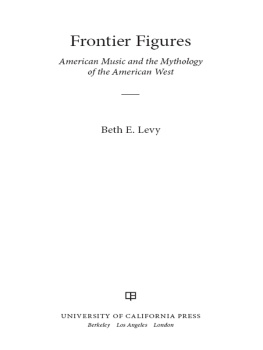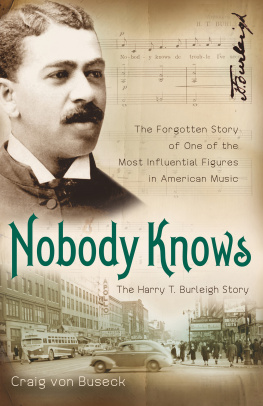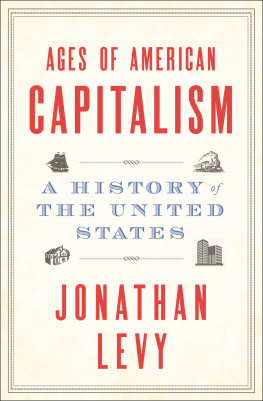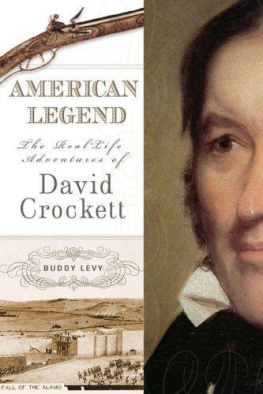Beth E. Levy - Frontier Figures: American Music and the Mythology of the American West
Here you can read online Beth E. Levy - Frontier Figures: American Music and the Mythology of the American West full text of the book (entire story) in english for free. Download pdf and epub, get meaning, cover and reviews about this ebook. year: 2012, publisher: University of California Press, genre: Art. Description of the work, (preface) as well as reviews are available. Best literature library LitArk.com created for fans of good reading and offers a wide selection of genres:
Romance novel
Science fiction
Adventure
Detective
Science
History
Home and family
Prose
Art
Politics
Computer
Non-fiction
Religion
Business
Children
Humor
Choose a favorite category and find really read worthwhile books. Enjoy immersion in the world of imagination, feel the emotions of the characters or learn something new for yourself, make an fascinating discovery.
- Book:Frontier Figures: American Music and the Mythology of the American West
- Author:
- Publisher:University of California Press
- Genre:
- Year:2012
- Rating:4 / 5
- Favourites:Add to favourites
- Your mark:
- 80
- 1
- 2
- 3
- 4
- 5
Frontier Figures: American Music and the Mythology of the American West: summary, description and annotation
We offer to read an annotation, description, summary or preface (depends on what the author of the book "Frontier Figures: American Music and the Mythology of the American West" wrote himself). If you haven't found the necessary information about the book — write in the comments, we will try to find it.
Beth E. Levy: author's other books
Who wrote Frontier Figures: American Music and the Mythology of the American West? Find out the surname, the name of the author of the book and a list of all author's works by series.
Frontier Figures: American Music and the Mythology of the American West — read online for free the complete book (whole text) full work
Below is the text of the book, divided by pages. System saving the place of the last page read, allows you to conveniently read the book "Frontier Figures: American Music and the Mythology of the American West" online for free, without having to search again every time where you left off. Put a bookmark, and you can go to the page where you finished reading at any time.
Font size:
Interval:
Bookmark:
ABBREVIATIONS
| AFC | Arthur Farwell Collection, Sibley Library, Eastman School of Music |
| CC | Nicolas Slonimsky, Roy Harris: Cimarron Composer, unpublished manuscript (1951), Roy Harris Collection, California State University, Los Angeles |
| CCLC | Copland Collection, Library of Congress |
| EDC | Evelyn Davis Culbertson, He Heard America Singing: ArthurFarwell, Composer and Crusading Music Educator (Metuchen, NJ: Scarecrow Press, 1992) |
| HP | Howard Pollack, Aaron Copland: The Life and Work of anUncommon Man (New York: Henry Holt and Company, 1999) |
| OH | UCLA Music Library Special Collections; Oral History Interviews, UC Regents; typescript (1983) in the Bancroft Library, University of California, Berkeley |
| Perison CWC | Harry D. Perison, Charles Wakefield Cadman: His Life and Works. (PhD diss., Eastman School of Music, University of Rochester, 1978) |
| PR | Paul Rosenfeld, An Hour with American Music (Philadelphia: J. B. Lippincott, 1929) |
| RHC | Roy Harris Collection, California State University, Los Angeles |
| VPAC1 | Aaron Copland and Vivian Perlis, Copland, 19001942 (New York: St. Martin's, 1984) |
| WJ | Arthur Farwell, Wanderjahre of a Revolutionist and Other Essays on American Music, ed. Thomas Stoner (Rochester, NY: University of Rochester Press, 1995) |
ACKNOWLEDGMENTS
For decades, artists and thinkers have approached the American West with a mixture of nostalgia and excitement-as if simultaneously returning home and embarking on an adventure. So perhaps it should come as no surprise that I have found both comfort and challenge in writing this book. I have had many companions along the way, and it is my heartfelt pleasure to thank them for their wise guidance, their practical assistance, and above all their camaraderie.
As this book took shape first in the form of a dissertation, I owe significant thanks to those who guided its first stages. First, my committee of readers. I feel the warmest and most profound gratitude to my adviser, Richard Taruskin, whose enthusiastic support and careful reading have informed and enlivened this project from the start. His influence continues to inspire me toward a scholarship that has both musical and moral force. I am also grateful to Katherine Bergeron for her generous advice and for knowing the right questions to ask; to the late Michael Rogin, whose insights into American cultural history have left their mark on each of my chapters; and to Kerwin Lee Klein for his insights into the American West and the writing of history. Research support at the dissertation stage was provided by the Andrew W. Mellon Fellowship Foundation, the American Musicological Society, the Townsend Center for the Humanities, Phi Beta Kappa (UC Berkeley Chapter), and the Music Department and Graduate Division of the University of California, Berkeley. More recently, the University of California Office of the President and the University of California, Davis, College of Letters and Sciences have provided fellowship and grant support during crucial phases of research and writing.
To my faculty colleagues at the University of California, Davis, I want to express my sincere thanks for their unflagging interest in my work and their commitment to creating an exceptional environment for research. I have also appreciated the contributions of graduate students in my recent seminars (on nationalism, music in the 1930s, and music in the West). I have benefited immensely from financial support and the intellectual companionship of colleagues at the UC Davis Humanities Institute in a faculty research symposium on California Cultures, and at Harvard University's Charles Warren Center for Studies in American History. For expert editorial feedback, I owe serious debts to Richard Crawford, Denise von Glahn, and many other readersanonymous and otherwise. My thinking about Copland has evolved in productive conversation with Elizabeth Bergman, Jessica Burr, Jennifer de Lapp, Carol J. Oja, and Howard Pollack, and on matters Californian with Leta Miller, and the late Catherine Parsons Smith. And for a delightful variety of writing advice, moral support, and good company, it is my great pleasure to thank Ardith Allen, Laura Basini, Mark Clague, Robert Fallon, Danielle Fosler-Lussier, Sandra Graham, Alyson Knop, Tanya Lee, Nathaniel G. Lew, Klra Mricz, Joel Phillips and Peter Schmelz.
The West is a big place and its archival materials are scattered widely. In addition to the army of mostly anonymous librarians (past and present) who collected and catalogued old concert programs, letters, the residue of community pageants and the like, I am especially grateful to the Interlibrary Loan staffs at UC Davis, UC Berkeley, and Harvard University; to the Oral History of American Music project at Yale University (especially Vivian Perlis and Libby van Cleve) and the University of California's Regional Oral History Program; to the Denver Public Library and the New York Public Library for access to isolated collections; to Patricia Harris for permission to use materials related to her father Roy; and to Ellen Bacon and Jon Elkus for assistance with the Ernst Bacon papers.
For more extensive assistance with archival research, I am grateful to David Coppen and the Special Collections staff at the Sibley Library, Eastman School of Music for their help with the Arthur Farwell Collections; to Jim Quigel and the Cadman Collection at the Historical Collections and Labor Archives, Special Collections Library at Pennsylvania State University; to Suzanne Lovejoy and Richard Boursy for access to the Virgil Thomson Papers at Yale University's Irving Gilmore Music Library; to David Sigler and Renee James at the Roy Harris Archive (California State University, Los Angeles); to Stephen M. Fry at the University of California, Los Angeles, Music Library and to Timothy A. Edwards and the staff at the UCLA Music Library, Special Collections; and to Wayne Shirley and Wilda Hess for their help with the Copland Collection at the Library of Congress.
I should also like to thank many members of the University of California Press for their support, expertise, and encouragement, chief among them Mary Francis, whose editorial eye and gentle understanding of authorial psychology were crucial to this project's completion. I am grateful to Eric Schmidt for technical assistance, to Jacqueline Volin for her responsiveness to many queries, and to Mary Ray Worley for her exceptionally careful copyediting. A special word of thanks goes to Sam Nichols for his painstaking and good-humored typesetting of music examples.
Four sections of this book present revised versions of material published else-where. A prcis of the material that grew into has been published as The Great Crossing: Nostalgia and Manifest Destiny in Aaron Copland's The Red Pony, Journal of Film Music 2, nos. 24 (2009): 20123.
Finally, my oldest, deepest, and most cherished debt: to my familymy parents, my brother, Benjamin, and many others. I know they will recognize in this book the souvenirs of many shared road trips and the imprint of many lively conversations. I thank them for their unfailing support and their love beyond words.
A UTHORS IMPRINT
Dedicated to discovering and sharing knowledge and creative vision, authors and scholars have endowed this imprint to perpetuate scholarship of the highest caliber.
Scholarship is to be createdby awakening a pure interest in knowledge.
Ralph Waldo Emerson
Text
10/12.5 Minion Pro
Display
Minion Pro
Compositor
Westchester Book Group
Printer and binder
IBT Global
Font size:
Interval:
Bookmark:
Similar books «Frontier Figures: American Music and the Mythology of the American West»
Look at similar books to Frontier Figures: American Music and the Mythology of the American West. We have selected literature similar in name and meaning in the hope of providing readers with more options to find new, interesting, not yet read works.
Discussion, reviews of the book Frontier Figures: American Music and the Mythology of the American West and just readers' own opinions. Leave your comments, write what you think about the work, its meaning or the main characters. Specify what exactly you liked and what you didn't like, and why you think so.






